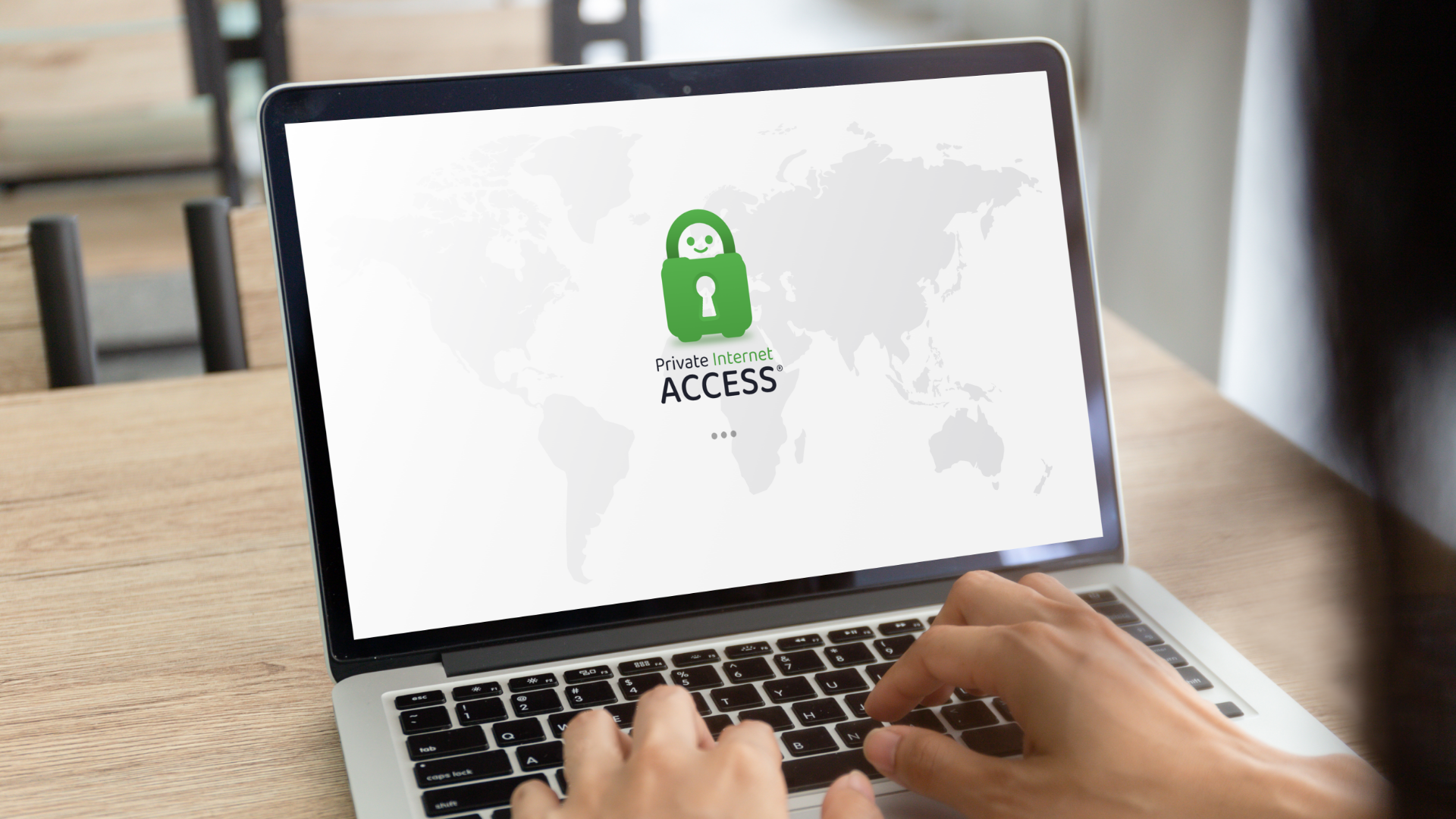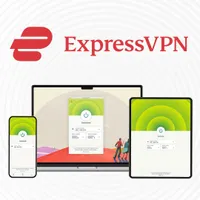New laptop? Don't forget this $2 privacy essential for students
A VPN is your one-stop shop for your laptop's digital security

Sign up for breaking news, reviews, opinion, top tech deals, and more.
You are now subscribed
Your newsletter sign-up was successful
Another academic year is right around the corner, so it’s a great time to invest in new hardware before you’re drowning under papers and assignments. Treating yourself to a shiny new laptop is a good start, but to fully take advantage of your high-speed campus connection, you’ll want to add a VPN to the mix.
A VPN is more than just a tool to protect your privacy from snooping network administrators. With one, you can spoof your IP and access services from back home, like local news and banking, at a moment’s notice. Plus, a VPN will help you jump around frustrating campus network limitations and access the content you need to get your work done. Best of all, you don't need to turn your budget upside-down to invest in a reliable VPN.
We've handpicked the best VPNs that offer next-level security features without the premium price tag, ensuring your new laptop stays safe throughout your academic journey and beyond.
ExpressVPN – The best VPN for beginners
ExpressVPN is an ideal choice if you want a secure VPN that anyone, regardless of technical skill level, can use. It makes protecting your new laptop as simple as clicking a button, with military-grade encryption that shields your data from prying eyes on campus networks. The intuitive interface means you can connect to any of the 100+ server locations within seconds, while advanced security features like quantum-resistant encryption ensures you’re protected from future threats. Plus, if you're not completely satisfied, their 30-day money-back guarantee lets you try the service risk-free.
The risks facing your new laptop
The moment you connect your brand-new laptop to the internet, it becomes vulnerable to a variety of digital threats. Some of them are more annoying than dangerous, but it’s important to be aware of them regardless, especially if you’re concerned about your privacy. So, let’s get into it.
You’ve probably heard about targeted advertising, but you might not be entirely clear on how it works.
Essentially, advertisers constantly track how you interact with the internet by using cookies to identify you. This information is aggregated and used to build an “anonymous” profile of your browsing habits, shopping preferences, and anything that can be used to more accurately identify you – so you can be served more specific targeted ads.
Advertisers constantly track how you interact with the internet by using cookies to identify you
These profiles don’t just stay with the advertising networks, either. They can be sold to data brokers and potentially used to denonymize you if they’ve collected enough information about your browsing habits.
This information is collected in all sorts of ways, too. If you’re browsing the internet via a coffee shop's free Wi-Fi, your data is likely being collected and aggregated for advertisers to use.
Speaking of, public Wi-Fi hotspots are notoriously popular hotspots for cybercriminals. While most of your browsing traffic is encrypted by default, all it takes is one password being sent over an unencrypted channel for a hacker to steal your identity and unlock your accounts.
You might be better off sticking to your campus Wi-Fi instead, which tends to offer better security, making you less vulnerable to these sniffing attacks. The problem is that you’re much more limited in what you can do on a campus network.
Many universities implement strict content filtering that blocks social media platforms, streaming services, and gaming sites. It’s usually the same case if you’re using campus Wi-Fi in your accommodation, too, so you can forget about late-night Netflix sessions... unless you have a VPN, that is!
How does a VPN help?
VPN encryption
VPNs create an encrypted tunnel between your laptop and the internet, rendering all your data unreadable to anyone trying to intercept it. This encryption is particularly important when using public Wi-Fi networks, where your internet traffic could be read by a cybercriminal lurking on the network.
IP spoofing
VPNs mask your real IP address by routing your internet traffic through servers in different locations. Connect to a VPN server in your hometown, and you'll appear to the websites you visit as though you’re connecting from back home, allowing you access to services that would otherwise be blocked while you're studying in a foreign country or State.
Add-on tools
Top-tier VPN services bundle additional security features that'll keep your laptop safe. It varies by provider, but most include a DNS-based ad-blocker that also keeps your browser from accessing malware or phishing sites. On top of that, some VPNs offer built-in antivirus software and password managers, as well as browser-based ad-blockers.
Multi-platform support
Keeping your laptop safe is only half the battle. You’re most likely bringing a smartphone to campus, too, and you might also have a tablet or gaming console. If you’re really lucky, you’ll even have a smart TV to deal with. Top-tier VPN providers offer dedicated apps that can protect all of these devices.

Our top VPN picks
After extensive testing, we've identified two VPN services that offer excellent value. That’s especially true if you’re a student based in the US, as both of these providers offer servers in all 50 states.
PIA
Private Internet Access strikes an impressive balance between affordability and functionality, making it an ideal choice if you’re looking for a high-powered cheap VPN.
At $2.03 per month when you buy the three-year plan, PIA won’t break the bank. Plus, one subscription gets you unlimited simultaneous connections, which is ideal if you’re bringing a bunch of devices with you onto campus.
The service's highly customizable interface might initially seem overwhelming, but getting started is easy. Simply download the app, log in, and tap the connect button. Once you're comfortable with the basics, you can explore PIA's extensive customization options at your leisure.
PIA also has some impressive privacy credentials, with a proven no-logs policy that has been tested in court twice and upheld both times.
ExpressVPN
While ExpressVPN commands a higher price point at $4.99/month on its 2-year plan, it justifies the cost with supreme user-friendliness and consistent performance that makes it our top recommendation for VPN beginners.
The service's intuitive interface eliminates any learning curve, too, so all you need to do is install and connect to keep your laptop prepped.
ExpressVPN excels as an all-around performer, capable of handling HD streaming, video calls, and online gaming without missing a beat. A worldwide server network in over 100+ countries means you’ll be able to access services around the planet, no matter where you’re studying.
Plus, ExpressVPN carries out regular independent audits that verify its no-logs policy and security practices. This transparency, combined with 24/7 customer support and a proven track record, means that ExpressVPN can be trusted to keep your laptop safe whether you’re studying on campus or taking a break in town.
Sign up for breaking news, reviews, opinion, top tech deals, and more.

Sam Dawson is a cybersecurity expert who has over four years of experience reviewing security-related software products. He focuses his writing on VPNs and security, previously writing for ProPrivacy before freelancing for Future PLC's brands, including TechRadar. Between running a penetration testing company and finishing a PhD focusing on speculative execution attacks at the University of Kent, he still somehow finds the time to keep an eye on how technology is impacting current affairs.
You must confirm your public display name before commenting
Please logout and then login again, you will then be prompted to enter your display name.
